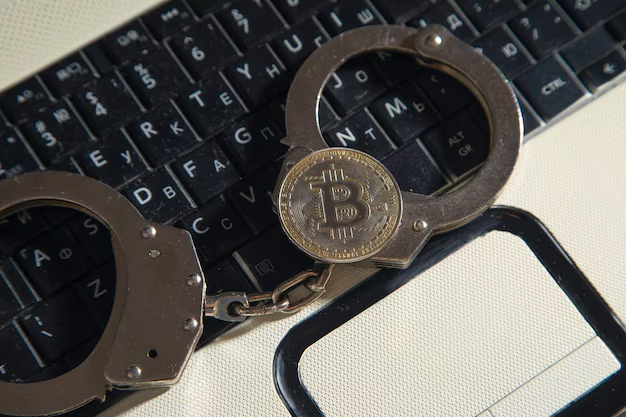Is Bitcoin Really Safe? Understanding the Security and Risks of the World’s Leading Cryptocurrency
Bitcoin has surged from tech-savvy obscurity to a household name, entrancing investors, technologists, and the curious public worldwide. Questions about its safety remain pertinent as it sits on the zenith of innovation and risk. Is Bitcoin truly safe? Let's explore the multifaceted world of Bitcoin, assessing its security and the surrounding ecosystem so you can navigate this digital landscape with confidence.
🌐 Understanding Bitcoin: Basics and Beyond
What is Bitcoin?
Bitcoin, the pioneering cryptocurrency, emerged in 2009 as a decentralized digital currency, permitting peer-to-peer transactions over the globe without intermediaries. Protected by cryptography, Bitcoin promises transparency, privacy, and financial autonomy.
How Does Bitcoin Work?
Bitcoin operates on a technology called blockchain, a secure, transparent digital ledger that records all transactions across a vast network of computers (nodes). This network validates and records transactions, ensuring they are immutable and secure.
Key Features:
- Decentralization: No central authority governs Bitcoin, reducing risks of centralized manipulation or failure.
- Transparency: All Bitcoin transactions are publicly recorded on the blockchain.
- Anonymity: While transactions are public, user identities are encrypted, providing privacy.
🔐 Exploring Bitcoin’s Security Mechanism
The Blockchain: A Secure Ledger
Integrity and Immutability:
The blockchain's consensus rules require that each block of transactions be verified by nodes before being appended to the chain. This verification ensures records cannot be retroactively altered without consensus.
Cryptographic Security:
Transactions are verified using cryptographic techniques, making them tamper-proof and very difficult for malicious actors to alter or forge.
Security of Bitcoin Wallets
Bitcoin storage relies heavily on digital wallets. Understanding different wallet types and their security features is vital for safeguarding assets.
Types of Wallets:
- Hot Wallets: Connected to the internet for ease of transactions but more vulnerable to cyberattacks.
- Cold Wallets: Offline storage options (like hardware wallets), offering significant security from internet threats.
Network Resilience
Bitcoin’s network security lies in its community of miners and nodes that maintain and secure the blockchain.
Network Redundancy:
Decentralization across thousands of nodes improves resilience against attacks and failures.
Proof of Work:
Mining, the validation process, requires solving complex algorithms, making it computationally expensive to attack the network.
🛡️ Threats and Vulnerabilities
Potential Risks in Bitcoin Investment
Volatility:
Bitcoin’s value can fluctuate dramatically, posing both significant opportunities and risks for investors.
Market Manipulation:
Despite its decentralization, Bitcoin markets can be susceptible to manipulation due to lack of regulation and limited liquidity compared to traditional assets.
Security Concerns in the Bitcoin Ecosystem
Cyber Threats:
Bitcoin exchanges and wallets can be targets for hackers aiming to steal funds. Ensuring robust security measures is crucial.
Human Error:
Loss of private keys or poor security practices can result in irreversible loss of Bitcoin.
📈 Consumer Insights: Making Informed Decisions
Best Practices for Safe Bitcoin Use
- Use Reputable Exchanges: Opt for well-known and regulated platforms to minimize risk.
- Secure Your Wallet: Employ robust passwords and two-factor authentication.
- Regular Backups: Keep backups of your wallet to recover funds if needed.
- Educate Yourself: Stay informed about security practices and market trends.
🔍 Summary: Optimal Bitcoin Security Tips
- 🔑 Prioritize Cold Storage: Keep substantial holdings in hardware wallets.
- 🔒 Enable 2FA: Add an extra layer of security to your accounts.
- 💡 Stay Updated: Regularly update wallet and security software.
- 📍 Diversify Investments: Don’t put all your eggs in one basket; spread risk across different assets.
💡 Broader Context: Bitcoin's Place in the Financial Ecosystem
Regulation and Its Impact
Regulatory Landscape:
Governments are increasingly introducing regulations to safeguard investors and ensure fair markets. Regulation can stabilize Bitcoin's role in finance but might affect its core principle of decentralization.
Compliance Requirements:
KYC (Know Your Customer) and AML (Anti-Money Laundering) rules are becoming common in exchanges, adding layers of security but challenging anonymity.
The Future of Bitcoin
Institutional Adoption:
As more institutions explore and invest in Bitcoin, its credibility as a legitimate asset class grows, potentially reducing volatility over time.
Technological Advancements:
Continual improvements in blockchain technology promise to enhance Bitcoin's security, scalability, and efficiency.
🤔 Closing Perspectives
Navigating the cryptocurrency realm requires balancing innovation with caution. While Bitcoin presents inherent security features through its blockchain technology and decentralization, risks from market fluctuations and the broader ecosystem require vigilance and strategic planning. By understanding and implementing security best practices, individuals and institutions can leverage Bitcoin safely to unlock its potential as a transformative financial asset. 🌟
For anyone intrigued by Bitcoin's allure or sceptical about its risks, education is the first step toward wisely navigating this dynamic landscape. Stay informed, stay secure, and keep exploring the evolving world of Bitcoin with confidence.

